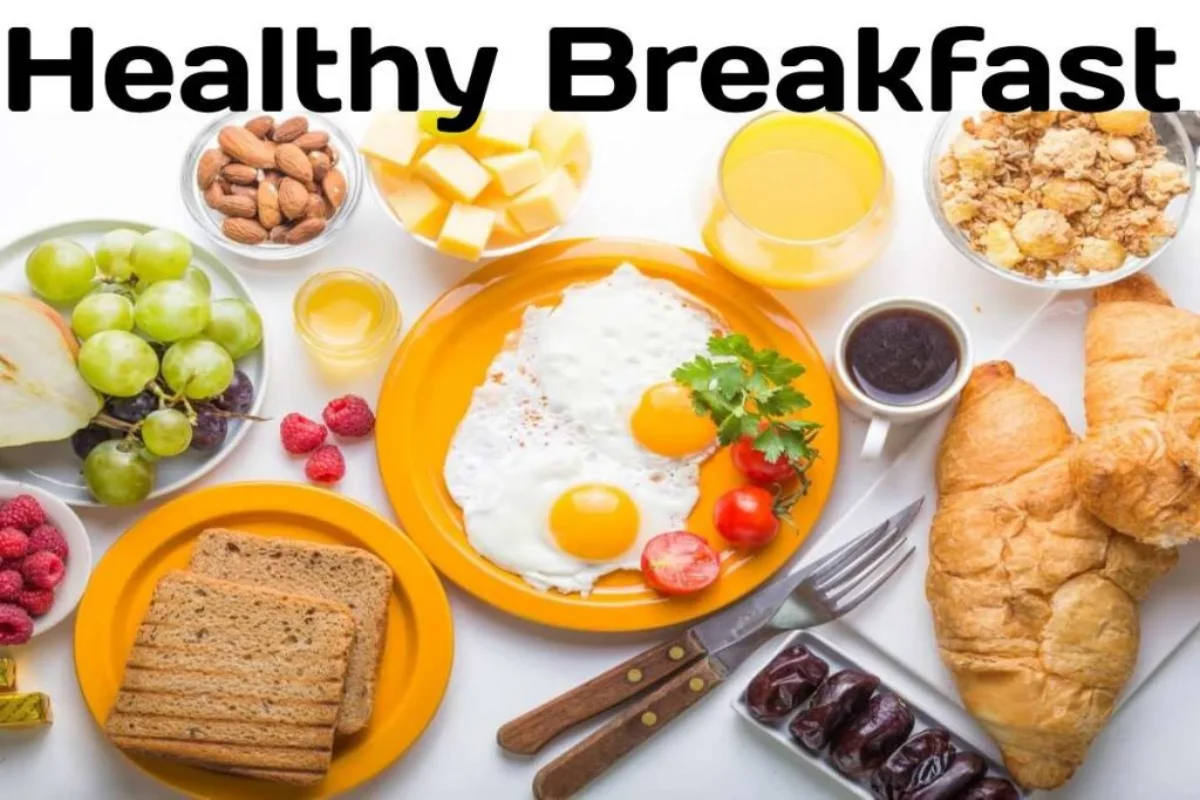Table of Contents
Healthy Breakfast
A healthy breakfast would be low in fat and high in fiber. According to experts, it is a food rich in carbohydrates and fibre and provides a lot of energy to face the day. We have heard that breakfast is the utmost vital meal of the day. And while some scientists have begun to question this claim, none dispute the Importance of a healthy breakfast.

The Importance of a Healthy Breakfast
If you need more advice in favour of having breakfast in ideal conditions every day, there you have it: Having a lousy breakfast causes us not to have a sufficient level of glucose, which affects our concentration, intellectual capacity, and mood.
At breakfast time, our body has already spent about 8 hours, and maybe more, without consuming any food or drink (the time we spend sleeping). In these circumstances, symptoms of dehydration can already occur that, although slight, can cause discomfort and physical or intellectual dysfunctions.
Through breakfast, we ingest nutrients, vitamins, and minerals that are very important for the proper functioning of our bodies.
It has shown that children who do not eat a good breakfast do not perform adequately at school.
The three Key Foods for a Healthy Breakfast
The essential foods for a complete breakfast are, according to the Situation Report on breakfast in Spain, prepared by the Spanish Nutrition Foundation (FEN) and presented on February 13 during the celebration of National Breakfast Day:
Milk or dairy foods, such as yoghurt or cheese. The most important property of this group of foods is calcium and proteins of high biological value. They also hold substantial amounts of vitamins A, D, B12, and other minerals such as phosphorus. But they are poor in iron, copper, and vitamin C. For overweight people with blood lipid disorders, it is advisable to drink semi-skimmed or skimmed milk with less fat and, therefore, fewer calories and cholesterol. Yoghurt also provides probiotics.
Cereals and derivatives but with fibre, such as whole meal bread, oatmeal, etc. This food mainly provides complex carbohydrates, some protein, and little fat, as well as B vitamins and minerals. They are an essential source of energy for the body. The contribution of B vitamins and fibre stands out, especially if they are whole grains.
Fresh fruit. It provides water, fibre, vitamins, and minerals. Along with vegetables, they provide most of the antioxidant substances. They are usually consumed, especially at the end of meals, because they are very effective in facilitating the assimilation of many nutrients. But they are an excellent option not only for breakfast but also for snacks.
The balanced combination of these three food groups provides the essential elements: carbohydrates, fibre, protein, water, and the necessary amount of fat. They can compete with other foods such as nuts (walnuts, almonds, hazelnuts.), protein foods such as eggs or cheese, and fatty foods such as extra virgin olive oil. It is important to remember that the perfect drink to accompany a good breakfast is water.
Foods that should be in a Healthy Breakfast
- The foods that should be part of a healthy breakfast significantly contribute to all essential nutrients.
- However, it is convenient to choose them from the hand of a nutritionist since the professional can guide us according to our needs. Some recommended options are:
- Whole grains: the most common is oatmeal, which we can eat raw, as if it were muesli, or cooked. If we prefer a sandwich, we will choose quality bread made with whole wheat flour, rye, etc.
- Vegetable drinks: for example, oatmeal, rice, spelt, etc.
- Lean proteins include eggs (preferably hard-boiled and not fried), a piece of chicken or lean meat, and legumes.
- Easily digestible dairy products: this includes kefir, yoghurt (with low sugar content), cottage cheese, and low-fat low-salt cottage cheese.
- Nuts without frying or roasting: we can eat them raw, ground, or chopped; They provide us with vegetable protein.
- Fresh and seasonal fruit: if possible, it should also be organic, without fertilisers or pesticides.
- Raw sunflower, sesame, flax, or pumpkin seeds: we can also take their first cold-pressed oil.
- Natural fruit and vegetable juices.
Conclusion
Keeping these guidelines in mind, we can quickly create a healthier breakfast without spending too much. However, once in doubt, it is best to seek advice from a nutrition professional. Remember breakfast is part of our healthy habits, do not forget to do it daily.
Also Read: Oli’s Fashion Cuisine Restaurant and Bar

